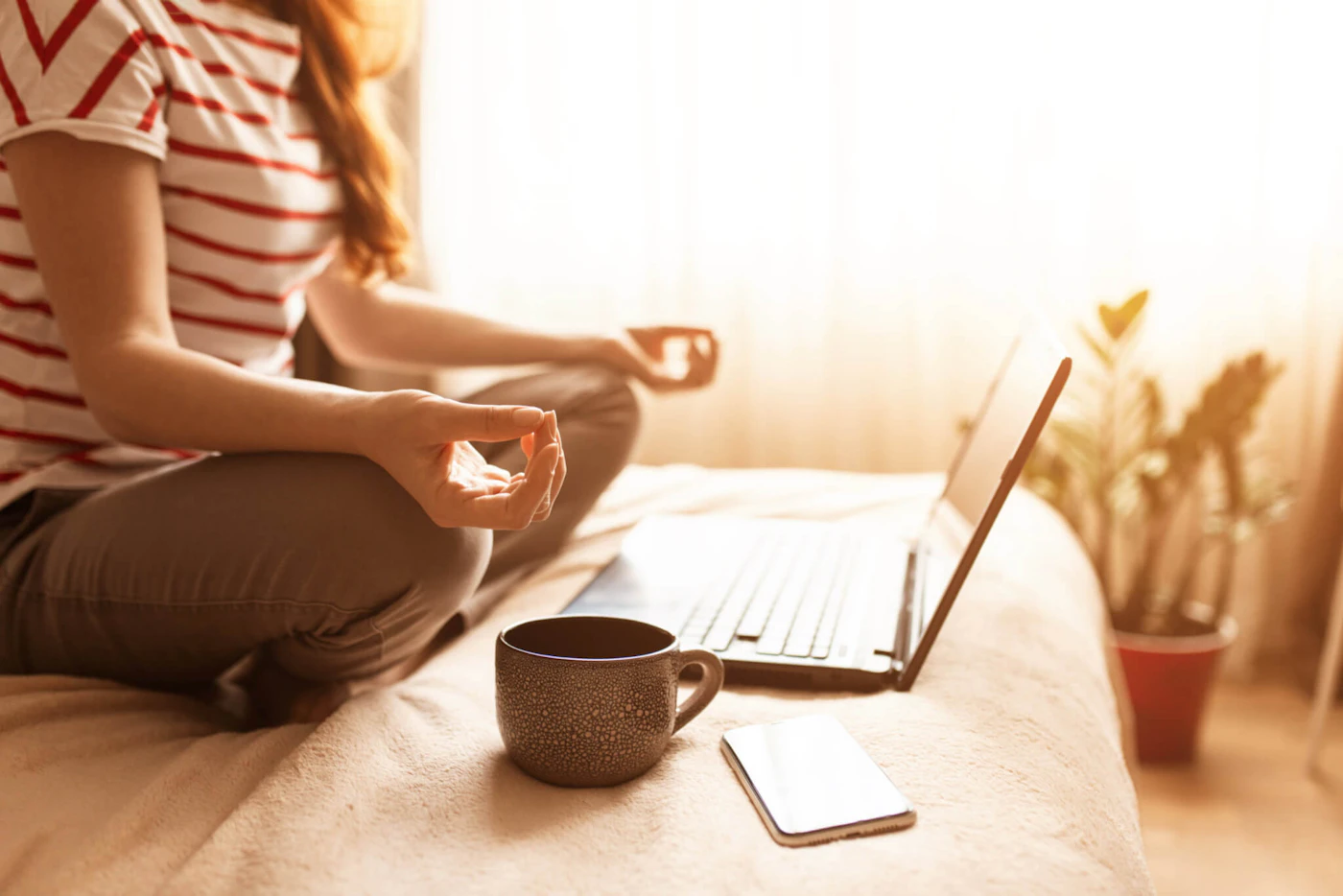Steps you can take to stimulate those anti-anxiety chemicals in your brain.
As predicted, we don’t know the winner of the 2020 presidential election yet—and we may not for several more days. If you’ve been riding an anxiety wave since Election Day—or even since the last election—you’re not alone. A poll from the American Psychological Association found that a majority of Americans, regardless of political affiliation, are finding the 2020 presidential election a significant source of stress.
Fortunately, there are numerous ways to calm your nerves and reduce the palpable stress. Whether you have one minute or 12 hours, taking a break from watching the TV or refreshing the poll results webpage to connect with yourself can help you (and your parasympathetic nervous system) feel calmer.
Here are some tried-and-true methods to stay calm today (and every day, really).
- Meditate. It’s not just self-help authors and monks that are touting the benefits of meditation. High-profile figures from Oprah Winfrey to Lebron James have praised the advantages of the practice, as have studies by Harvard researchers. There’s no need to sit for an hour either; Headspace founder Andy Puddicombe is well-known for his Ted Talk explaining how just 10 minutes of meditation can have significant results. Free apps like Insight Timer offer tons of guided meditations to suit your style as well.
- Practice Deep Breathing. Taking slow, deep breaths is one of the simplest ways to immediately calm yourself and have a grounding effect. There’s a reason the phrase “just breathe” is a typical response when trying to soothe someone. There are several different breathing practices but a popular one is the 4-7-8 breathing technique, where you inhale for four seconds, hold the breath for seven, and exhale for eight seconds. Try to breathe into the belly as much as possible, as diaphragmatic breathing has been shown in studies to decrease anxiety and depression.
- Do Online Yoga or Some Other Form of Exercise. Any of your preferred ways to get moving can help expend stressful energy and stimulate the production of anti-anxiety chemicals in the brain, “including serotonin, gamma aminobutyric acid (GABA), brain-derived neurotrophic factor (BDNF), and endocannabinoids,” according to Dr. John J. Ratey. Running, biking, and other simple cardio workouts are easy enough to engage in for free, while you can find numerous online yoga classes.
- Seek Out Positive Entertainment. CNN and MSNBC are not happy entertainment for most people. So try binge watching Schitt’s Creek for the third time or pretend you’re in the cheery English countryside with the Great British Baking Show. Another option is to pick up a fantasy novel that will transport you somewhere else, like Gods of Jade and Shadow. Whatever you do, don’t put on a drama that’s just going to up your anxiety levels. A 2013 study following the Boston bombings saw a direct correlation in media consumption and acute stress levels. Annie Miller, MSW, LCSW-C, LICSW, explained to Verywell Mind, “It can be damaging to constantly be reading the news because constant exposure to negative information can impact our brain.” This is due to our brain activating the fight or flight response, even when we are not in direct threat.
- Talk with family and friends. With the COVID-19 pandemic, 2020 has already been a particularly lonely year, and the election can exacerbate that. Even if you’re not able to be with family in person, or have a socially distanced coffee with a friend, schedule a FaceTime call with a loved one to feel a sense of connection. If several of your friends or family members are feeling stressed and alone, have a virtual game night.
- Journal. Getting everything out on paper can be a very cathartic and stress-relieving activity. Write how you’re feeling, what you’re afraid of, who you’re angry at–without censoring yourself. Jay Shetty, a former monk, told told TODAY viewers Tuesday morning to “take a step away today and write about all the things that are worrying you.” Expressive writing, which is essentially journaling, was shown to reduce blood pressure and symptoms of depression, and improve moods in study participants.
- Go Gentle on Yourself. Whatever that means to you. If self-care for you is spending hours watching and learning Tik-Tok dances, have at it. If it’s taking a personal day from work so you can go on a hike, or watch a Nora Ephron movie marathon, or setting up an aromatherapy bubble bath, do it. Take guilt out of the equation and do what feels most kind to yourself.
- Focus on What You Can Control. This is by no means easy, but remember that some things – including the election – are just out of your control. Whenever you start to feel anxiety about something, ask yourself: “Is this something I can control?” If the answer is no, try to let it go and pivot to something you can.




